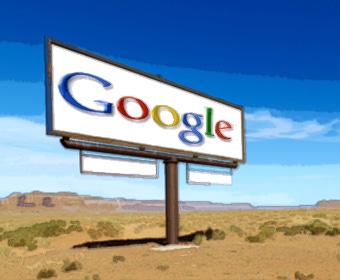When it comes to the search advertising market, tangling with Google makes David vs. Goliath look like an even fight. Already in possession of the lion's share of the desktop advertising market, Google is now poised to expand its significant advertising influence in the mobile realm with its proposed acquisition of AdMob.
April 8, 2010

When it comes to the search advertising market, tangling with Google makes David vs. Goliath look like an even fight. Already in possession of the lion’s share of the desktop advertising market, Google is now poised to expand its significant advertising influence in the mobile realm with its proposed acquisition of AdMob.
Fearing that they will be blacklisted in a Google controlled mobile advertising market, many developers and advertisers are understandably hesitant to speak out against the acquisition. However, to ensure a competitive mobile advertising marketplace in the future it is essential that telecoms regulators around the world fully understand the consequences of the potential merger.
If you were to listen to Google representatives talk about the acquisition, you would think that they had not done their homework on the mobile advertising market, relying on third parties who described the market as a “very fragmented” space in which “no ad network is dominant” and “no one really knows what ad network is biggest.” These vague comments are misleading at best, especially considering actual market data directly refutes Google’s claims.
Research clearly demonstrates that AdMob far and away has the largest and most dominant ad network; the numbers are astonishing. According to mobile analytics company Ground Truth’s data for February 7-13, 2010, AdMob placed ads on 374 of the 800 top trafficked US mobile internet sites (46.75 per cent). During the same time period, AdMob’s competitor Millennial Media served ads on 240 (or 30 per cent) of the top 800 mobile internet sites, with AdMob serving nearly six times as many clicks as them. Another AdMob competitor, Quattro Wireless (Apple’s mobile advertising acquisition) placed advertising on 142 (or 17.75 per cent) of the top 800 sites, making AdMob nearly 6.5 times larger than them.
These numbers alone are overwhelming but Google’s alleged recent behavior towards application developers is another cause of significant concern. Inside sources say that Google employees have been contacting app developers and “asking” them to call the Federal Trade Commission (FTC) to give favorable opinions about Google’s proposed acquisition of AdMob. Application developers derive a significant portion of website traffic and income from Google, so turning down Google’s “requests” is not much of a viable option. If these allegations are conclusively proven to be true, the implications are serious considering the FTC may be not getting the real viewpoints of app developers as it conducts its investigation into the proposed deal. The FTC will likely have a very dim view of this conduct since they often use testimony gathered during their investigation from the affected industry as justification for approving a deal and as grounds to avoid any subsequent appeals. If the FTC does begin issuing subpoenas to these developers, which sources say it very well may do, Google’s “requests” could come back to haunt them.
If past behavior is any indication of how Google would use its new dominant position in the mobile advertising market, then there is also significant cause for concern. In early December 2008, Google altered the default campaign settings of its AdWords program and automatically opted all of its advertisers into this change. In addition to running on laptops and desktops, all existing and any new AdWords campaigns were set to automatically run on any mobile device which has a full internet browser. Up until that point, laptop and desktop PCs were the previous default campaign reach. This change in default settings was not just another new feature but a fundamental change to the reach of the AdWords program. By automatically extending AdWords campaigns to include smartphones, Google leveraged its strength in the desktop internet ad serving market to gain a substantial and instantaneous boost to its presence in the mobile advertising market, earning large profits in the process. Google barely publicised the campaign change and in doing so paid little regard to its advertisers who were duped into serving their ads on mobile phones, whether they intended to or not. Google has shown little concern for advertisers on the desktop internet, so there is no reason to believe they have the best interests of mobile advertisers in mind.
Given Google’s strong position in the mobile advertising marketplace, many developers and advertisers assume the acquisition is a foregone conclusion and that they will have to live with the new reality, but this is not the case. The Federal Trade Commission (FTC) is investigating the deal and there is still time for the regulatory agency to stop the online search giant from establishing a virtual monopoly in the mobile advertising market. It is not easy telling one of the most powerful global companies no, but given the evidence, the FTC must have the wherewithal to block the merger and keep mobile advertising competitive.
Simon Buckingham is CEO of Appitalism, Mobile Streams and Zoombak
About the Author(s)
You May Also Like








.png?width=300&auto=webp&quality=80&disable=upscale)


_1.jpg?width=300&auto=webp&quality=80&disable=upscale)


.png?width=800&auto=webp&quality=80&disable=upscale)